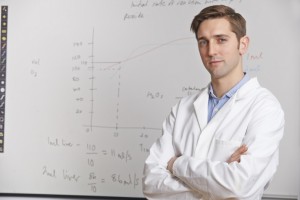 Those terrible twins curriculum and assessment often leave science teachers frustrated at the compromises they are forced to make. We would like our students to be deeply engaged and learning about the applications of the science. But in practice we have little time for deviating from the straight and narrow. What if things were different? What if there were fewer ideas to rush through, and solving scientific problems was in the Syllabus?
Those terrible twins curriculum and assessment often leave science teachers frustrated at the compromises they are forced to make. We would like our students to be deeply engaged and learning about the applications of the science. But in practice we have little time for deviating from the straight and narrow. What if things were different? What if there were fewer ideas to rush through, and solving scientific problems was in the Syllabus?
This thought experiment is about to become reality with the launch of the new KS3 Science Syllabus from AQA in December 2015. The Syllabus is a partnership with ENGAGE, a curriculum and professional development project that the Centre for Science Education runs for the European Commission.
The collaboration emerged from our joint aim – to swing the pendulum away from delivering content and towards building understanding and skill.
Our first challenge was to reduce the 150+ ideas in the KS3 National Curriculum – almost one per lesson. We managed to halve the number of ideas by prioritising the content around ‘Big Ideas’. So now the Syllabus gives teachers a bit more time to explore. Then we had to find a way to raise the bar on understanding. We came up with a novel 3 step progression to describe the learning objectives. Know, Apply and Extend is a simple formula to follow, follows a research-based Taxonomy, and prepares students for the most demanding Assessment Objective number 3 at GCSE.
‘Know’ at the bottom, sets out basic knowledge and understanding – as Syllabuses do. It’s the ‘Apply’ and ‘Extend’ steps where AQA’s Syllabus differentiates itself, and where the link with ENGAGE originated. Apply defines objectives that make students think, using ideas in contexts different to those that were taught. Extend challenges students to go even further and use higher order critical and creative thinking. ENGAGE materials provide solutions for teaching Apply and Extend objectives. Death to diesel? for example, hits the Apply objective for chemical reactions: “predict the products of combustion and write a word equation”. The activity challenges students to work out what gases diesel engines produce, and the reach an informed opinion on whether people should buy diesel cars.
But scientific content is only half the story. We need to give scientific enquiry its rightful place if students are to learn how to solve problems in the real world. Typically Syllabuses only give details about how to design experiments. They gloss over the skills for exploring the applications and implications of science, which are therefore often ignored. This can leave students ill-prepared for those 6 mark GCSE questions about evaluating evidence or justifying opinions. AQA and ENGAGE have solved this problem by carefully defining 16 processes for enquiry. We have set out the skills for interrogate a scientific source, justifying an opinion and communicating effectively in black and white. ENGAGE curriculum materials offer model teaching sequences for each process, based on research in skills teaching. All in all we are developing 60 lessons over three years. More than 4000 teachers have already downloaded the 25 published on the ENGAGE website.
I can’t wait to find out teachers’ reactions to the new Syllabus. I hope they will see it as an important weapon in improving students’ experience of science. My ambition is to influence how examiners can write syllabuses and tests which reward understanding and higher-order thinking. If this resonates with you, drop me an email.
Tony Sherborne, Centre for Science Education, Sheffield Institute of Education.
Leave a Reply